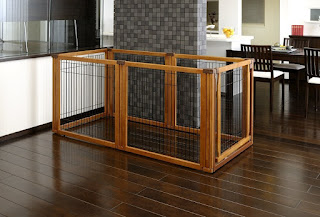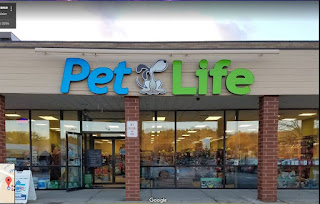Different Types and Categories of Endangered Animals
Is The Crash-tested Gunner Dog Kennel Worth It? We Tried It To Find Out
Content is created by CNN Underscored's team of editors who work independently from the CNN newsroom. When you buy through links on our site, CNN and its syndication partners may earn a commission. Learn more
Jae Thomas/CNN Underscored
My two dogs, Miso and Dashi, are constantly in the car with me. Not only do they tag along on road trips and camping weekends but they compete in various dog sports. Between classes, trials and dog shows, we're always on the go — and they always ride in their Gunner G1 Kennels.
While Gunner Kennels are a bit heavy and bulky, the design is for good reason: safety. Dogs can become hazardous projectiles in car accidents if they're loose in a car, resulting in injuries to themselves and other passengers. Unrestrained dogs can also run away from the scene of an accident if they aren't in a crate, becoming lost or injured by oncoming traffic. If you live in New Jersey, Nevada, or Washington, there are even laws that require animals to be properly restrained in the car, so picking up a car kennel or doggy seatbelt is paramount.
While there are tons of crates on the market, not many of them are crash tested. That's why I've been using one of the most popular crash-tested crates — the Gunner G1 Kennel — for over a year to see if it's actually worth it.
Gunner G1 Kennel
Gunner
Gunner's CPS-certified G1 Kennels are extensively crash tested, ultra durable and come with a lifetime warranty. If you're serious about keeping your four-legged friend safe on the road, Gunner Kennels are worth the money.
What I liked about itJae Thomas/CNN Underscored
Gunner is the only dog car crate brand with three different CPS-certified sizes on the market, and the crates are incredibly durable and versatile. Here are the factors that stood out the most during testing.
Gunner Kennels are 5-star crash testedYes, Gunner crates are expensive, but that money isn't just going toward any old kennel. A crash-tested crate is the best way to keep your dog (and yourself) safe in the event of an accident, and Gunner's crash testing and durability tests are extensive.
Three sizes of Gunner's rotomolded car crates have been crash tested and certified by the Center for Pet Safety (CPS) when paired with the brand's strength-rated tie-down straps. CPS is a nonprofit organization that tests and evaluates products, including car crates, for pet safety. It uses specially made dog and cat dummies in its testing and examines the structural integrity of crates and pet carriers in crash simulations. The small, medium and intermediate Gunner Kennels all received a 5-star crash-test rating from CPS — the highest any kennel can get. The intermediate crate, specifically, was used as a part of the agency's 2015 Crate Study. Note that the large G1 Kennel has not been CPS certified.
CPS' crash testing entails strapping the crate down to a flat, simulated cargo area and securing it with the brand's anchor straps to four strength-rated anchor points. CPS also created a metal "seatback fixture" in the cargo area which allowed testers to see if any potential damage would occur to a seatback because of a crate in a second test. This testing setup mimics what it would look like for a crate to be strapped down in the trunk or cargo area of a truck or SUV.
The results of the crash testing for each size kennel all show minimal movement and no structural or connection issues with either the crate, the crate door or the anchor straps in a crash-test environment. All crash testing was conducted with Gunner's G1 branded anchor straps, which are sold separately, so make sure to grab a set if you want the full safety benefits of these crates.
On top of the CPS certification, Gunner has put its crates through various other tests, such as squeezing it with 4,000 pounds of pressure in a vise machine (the brand says it broke the machine), dropping 630 pounds on it, throwing it off a cliff and even shooting it with a shotgun. Beyond testing, you can also read numerous customer testimonials that preach about the safety of Gunner crates.
Gunner crates are durable and high qualityJae Thomas/CNN Underscored
Although Gunner's double-walled, rotomolded crates are built for safety, they're durable for everyday purposes too. I've dropped my intermediate kennel out of the back of my car without so much as a scrape, and my shark-toothed puppy (who chewed through another brand's car kennel) has never even tried to damage the inside of the Gunner. Though Gunner doesn't claim that its crates are escape- or chew-proof, unless your dog is an intense chewer, there's not much that can be chewed on inside the crate. If your dog does manage to sink its teeth in, Gunner offers a chew kit for high-anxiety dogs separately. The only real damage I've experienced during the year of testing are small scratches from pushing the metal ends of the tie-down straps through the crate's loops too aggressively, but it's minimal and merely cosmetic.
Along with the safety factor, the high-quality details on Gunner's G1 Kennels make them worth the money. The door comes with three different locks built-in: two latch locks at the top and bottom of the crate and one on the handle of the kennel that can be locked and unlocked with a key. Whether you have your dog crated in the back of a truck while you make a quick pit stop on the road or you simply want to ensure that your pup can't be let out of its kennel, the locks add an extra layer of security.
I also liked that the door has a place to put a dog's name tag, and the hex pattern on the door makes a good fit for a Yeti Sidekick or compatible accessories like an attachable bowl or fan. The doors are also reversible, so you can open them in whichever direction best suits your needs.
Gunner crates are super easy to clean. I'm not proud to say that on a recent hour-long drive, my Rough collie puppy spewed wet poop all over the inside of her kennel. I had the Performance Pad inside, and the mess, while gross, was truly no big deal.
Since the interior doesn't have many nooks and crannies, I was able to wipe everything out easily on the side of the road until I could get home to do a deep clean. All Gunner kennels have a drain plug in the back too, so hosing out your kennel and getting it dry is simple and quick.
Other benefitsGunner kennels have impressive temperature regulation, thanks to its double-wall rotomolding. It's almost built like a Yeti cooler (but to hold your dog). During tests run by the brand, Gunner kennels stayed up to 20 degrees Fahrenheit warmer than the outside temperature when placed in the back of a truck. During thermal tests run by the brand, the crates also stayed around 10% cooler than comparable single-wall crates (though this isn't a reason to leave your dog inside a hot car, obviously).
I conducted my own temperature test in my garage with two wireless thermostats. One was placed in the kennel with my dog, and the other was placed on top of the kennel. The crate was in my garage for multiple hours before I ran the test. After one hour, the air temperature in the kennel was 53.1 degrees Fahrenheit, and the outside air temperature was just under 48 degrees. The kennel stayed over five degrees warmer than the air outside, so if you have your crate in an enclosed space like the cargo area of an SUV, your dog will stay warm in surprisingly low temperatures, even if your car isn't running and your heat isn't on.
Jae Thomas/CNN Underscored
I've also found that Gunner kennels help my dogs with car anxiety and car sickness. The proper fit for Gunner kennels used for transportation is pretty snug — a dog should touch three sides of the kennel for a safe car fit. This snug fit means that dogs feel more secure and bounce around much less than they would without a crate, which is super safe in case of a wreck but also has some day-to-day benefits as well. My collie puppy is prone to car sickness and, subsequently, a little bit of car anxiety, but the design of the Gunner doesn't allow a ton of room for her to look out the crate (which usually makes her car sick, evidenced by a puddle of drool once we get to our destination). Note that most well-fitting car crates would likely offer these benefits as well.
What I didn't like about it It's heavy and bulkyJae Thomas/CNN Underscored
I'll be honest: One intermediate and one medium Gunner G1 take up about 80% of the back seat and the cargo space in my 2023 Ford Bronco Sport. With two crates in the car, I'm left with one back seat that can be left up and about a foot of cargo space for storage in the back. This configuration is fine for day-to-day dog transport, but when I go camping or on a long road trip that requires a lot of gear, I usually end up having to boot one of the kennels in favor of a crash-tested dog harness to save space.
The small and medium crates can fit in the cargo area of most mid-size and full-size SUVs without putting the back seats down, but the intermediate almost always requires sacrificing a seat. Families with kids and multiple dogs might not have the luxury of space to fit one Gunner kennel, let alone more, and if you own a sedan, you likely won't be able to fit anything bigger than the small Gunner in your back seat.
If you're not super strong, it can also be difficult to get the kennels in and out of your car. The small crate weighs about 27 pounds, the medium weighs about 36 pounds and the intermediate crate weighs nearly 50 pounds. If you happen to have your kennel in a sideways configuration in the trunk area of an SUV, it can mean loading your dog up while the kennel is turned slightly out of the car, then having to push it into the right positioning with your dog inside to strap it down. If you have an intermediate kennel with a 70-pound dog in it, you might be looking at having to push around 120 pounds, which isn't feasible for everyone.
Crash testing means they're priceySpending more than $500 for a dog car crate may seem excessive, but vet bills for a dog hurt during an accident will rack up way more than that. In comparison to other CPS-certified car kennels, Gunner's prices are similar. The G1 Kennels are $550, $650, $700 and $900 for the small, medium, intermediate and large kennels, respectively. For reference, Lucky Duck's CPS-certified kennels run between $550 and $700. Rock Creek's CPS-certified Stationary crate has a retail price of $875.
You're going to have to pay a premium if you want fully crash-tested crates. Folks on a budget might be tempted to throw a wire crate in the car instead, but the crash tests don't lie. CPS conducted preliminary testing on wire crates in an impact simulation, and the results suggested that the test dog would have become a dangerous projectile strong enough to break the seat back and seriously injure human passengers. CPS also said that the crash test dog dummy was destroyed in this test, which isn't a good indication of how a real dog might fare in a wreck in a wire crate.
Crash-tested crates like Gunner's G1 Kennels may seem like a luxury for your dog, but they're the best bet to ensure everyone in your car stays safe — and that's worth the price in my opinion.
How it comparesWhile the large size G1 Kennel still hasn't been CPS certified, Gunner is the only brand that offers three different sizes of CPS 5-star-certified crash-tested crates. Other brands typically only offer one or two sizes that have passed CPS testing. This gives Gunner the leg up in variety — more sizes of dogs can fit in Gunners than any other 5-star CPS-certified crate.
Crash-tested dog seat belts are a more budget-friendly way to keep your dog restrained in the car, but they don't completely stop your dog from moving around and won't protect them from shattered glass or other projectiles in a crash the way a kennel would. Crash-tested harnesses can also put pressure on a dog's neck and joints during impact and may still cause injury. Currently, there are only two CPS-certified car harnesses on the market: the Sleepypod Clickit Sport and the Sleepypod Clickit Terrain.
Other crash-tested car crates have their downsides in comparison to Gunner. Variocage's car systems are extremely expensive (starting at $1000 for a single crate), and Rock Creek and Cabela's only offer one size in their respective crash-tested kennels. Lucky Duck kennels are lightweight and at a comparable price to Gunner, but the brand doesn't offer a size suitable for small breeds and doesn't have as much in-house testing as Gunner does.
Bottom lineJae Thomas/CNN Underscored
There's a difference between a crate that will keep your dog restrained while driving and ease distractions and one that will actually keep your dog and your passengers safe in an accident. Given the extensive crash testing, the amazing durability and the high-quality construction, Gunner Kennels are a worthy investment for keeping your furry friend, yourself and your passengers safe on the road.
Note: The prices above reflect the retailers' listed price at the time of publication.
For more CNN news and newsletters create an account at CNN.Com
View comments
Is Crate Training Your Dog Good Or Bad? It Depends
By Xochitl Bott RiveraXóchitl Bott Rivera is a trending news intern at Deseret News and currently covers science and tech news.
Crate training a dog is a must for many dog owners. There are a lot of how-to guides on how to crate train a dog. But according to the The Washington Post, whether or not you should crate your dog might be a bit complicated. Here's what you should know.
The controversy around crate trainingMultiple organizations are for crate training, but others are against it. According to The Washington Post, PETA is against crate training and it's even illegal in certain European countries.
Meanwhile, veterinarians and dog trainers suggest crate training dogs from a young age because it gives both dogs and owners a peace of mind, per American Kennel Club.
The Washington Post also points out that some people believe dogs are "den animals," or animals that live most of their lives in a den-like environment like a cave. This misconception has often led people to assume dogs should naturally like being in a crate.
But that's not the case — wild dogs spend most of their time roaming free, and our dogs are no exception.
Benefits of crate trainingThere are multiple benefits to crate training your dog. The Humane Society of the United States shares that dogs will often seek a comfortable yet quiet place when their environment becomes too overwhelming, and a crate is a great option for a dog to seek shelter in. A crate also prevents dogs from chewing on household items.
The American Kennel Club also shares positive benefits crates have for your dog:
To successfully reap the benefits of crate training, owners must introduce the crate correctly to their dog and then make sure the dog feels calm and comfortable in the crate, according to The Washington Post. If a dog is not introduced correctly to the crate, it will be distressing to the dog.
Marny Nofi from American Society for the Prevention of Cruelty to Animals shared a few tips with The Washington Post on how to make the crate a more comfortable place for your dog. She suggests using a crate that is bigger than your dog with enough space for them to stand up and stretch their legs, and to have sufficient bedding with enrichment toys.
Nofi stresses not to use the crate as a form of punishment, because then the dog will associate the crate as a negative thing.
The Humane Society has a list of steps you can follow to crate train your dog, as summarized below:
There will be circumstances where a dog will not like the crate, regardless of crate training. According to The Washington Post, dogs with separation anxiety will show a lot of distressed behaviors when they're in the crate. Other unhealthy behaviors of a dog feeling distressed in their crate include being destructive, trying to escape or causing self-injury.
Kate Anderson from Cornell's Duffield Institute for Animal Behavior shared with The Washington Post that such behaviors will not be solved by getting another crate.
Instead, it's best to go to a veterinarian to figure out the root cause of the distressing behaviors; but even then, some dogs just aren't meant to be with crates.
Animal Care & Control Dog Kennel Renovations – Part Four In Progress And Part 5 Set To Begin
CHARLOTTE, NC (News Release) — Charlotte-Mecklenburg Animal Care & Control (ACC) has been undergoing critically needed renovations on its dog kennels since last September. ACC is happy to report that all the lost dog kennels have completed the renovation process. Currently 19 adoption puppy kennels are under renovation and are moving through the process quickly. The goal is to have them completed around April 12th.
Next section of kennel renovations: Dog Adoption – 47 kennels:The next and final phase of the kennel renovation project are the dog adoption kennels. The deadline to have these kennels empty for the demo to begin is Friday, April 12 by close of business. The dog kennel renovation is projected to be fully completed by end of April.
Dog Kennels Completed
18 Indoor Dog Kennels, which are 2 rooms of 9 kennels in each and are called Dog in Care 1 and Dog in Care 2. These rooms are for isolating dogs with respiratory medical issues. Each room has a new state-of-the-art ventilation system, which helps with disease spread in a shelter environment.
82 Indoor/Outdoor Lost Dog Kennels, these kennels have been updated with new stainless-steel doors and cage sides and tops, and new transition doors. The also have new epoxy flooring. Each door has a built-in food tray system for easy and safe access for feeding and they still have the auto-refill water bowls in each kennel run.
Relief kennels in use:Additionally, the shelter has felt some relief thanks to the opening of the ACC Satellite Shelter at 2700 Toomey Avenue, (The old Humane Society of Charlotte shelter) on Saturday, October 21, 2023. The City of Charlotte worked diligently for several months over the summer renovating this space allowing ACC to gain twenty-eight (28) dog kennels and eleven (11) cat kennels. This space is being used mostly for smaller dogs (under 45 pounds) and kittens. The square footage of the cat kennels allows the shelter to house 3 kittens per cage if needed. The satellite location is open seven (7) days a week from 9:00 a.M. To 5:00 p.M. This location is by appointment only.Appointments can be made here.
Goal: moving dogs through the shelter as quickly as possible will be the key to success:During the next renovation phase, CMPD ACC will be down forty-seven (47) spaces for dogs. This means that it is critical to continue to move dogs through the shelter system as quickly as possible. Many lost dogs will continue to enter the shelter daily, so it is vital to ensure there are more dogs leaving the shelter in positive outcome situations such as Adoption, going into long-term Foster, being transferred to a rescue group, or being reunited with their owner. The key to success is: dogs moving out of the shelter faster than they are coming in.
HERE ARE WAYS YOU CAN HELP
Adopt: If you have been thinking about adding a dog to your family, there is no better time than now to help save a life while finding the best, loyal, and faithful companion.Foster: If you can't adopt but have room for a foster, long-term fostering for Rest and relaxation (R&R) is urgently needed.Sponsor: Team up with a local doggy daycare or boarding facility to sponsor a stay for an ACC foster dog. Email: friendsofcmas@gmail.ComDonate: to Friends of CMAS Pet Boarding Fund https://www.Friendsofcmas.Org/donate
How can the public help keep dogs from entering the animal shelter and taking up the high-value kennel space:Chip: Make sure your dog has a microchip and the registration is up to date with your current phone number and address. Update in the ACC local database for Free.
ID: Make sure your dog wears a collar with an ID tag with your current phone number and address. Visit the animal adoption center during normal business hours and request a free ID tag.
24-48 Hour Foster Hold on to a lost dog at your home while you look for his/her owner. File a found dog report on the ACC website to fulfill the legal obligation and then use the ACC tips to help you search for its owner.
FAQ's:
Q: How long will this construction take?A: Construction completion dates are very fluid, so it is hard to provide exact dates. The City of Charlotte and the contractors on the renovation projects are working very diligently and conscientiously to take as few kennels at a time as possible, knowing that this has a huge impact on lifesaving efforts.
Q: Has the Satellite Shelter helped?A: Any extra kennel space is of course very helpful, but more kennels come with a need for additional staff and a larger operational budget to cover more food, medical and cleaning supplies, and the basic cost of electricity, water, janitorial, trash removal cost and more. Donations are very helpful to offset this extra cost.
Q: What helps the most in a situation like this?A: Aside from the things mentioned about adopting and fostering:
Questions:Please contact ACC Communications & Outreach Manager – Melissa Knicely at melissa.Knicely@cmpd.Org.





Comments
Post a Comment